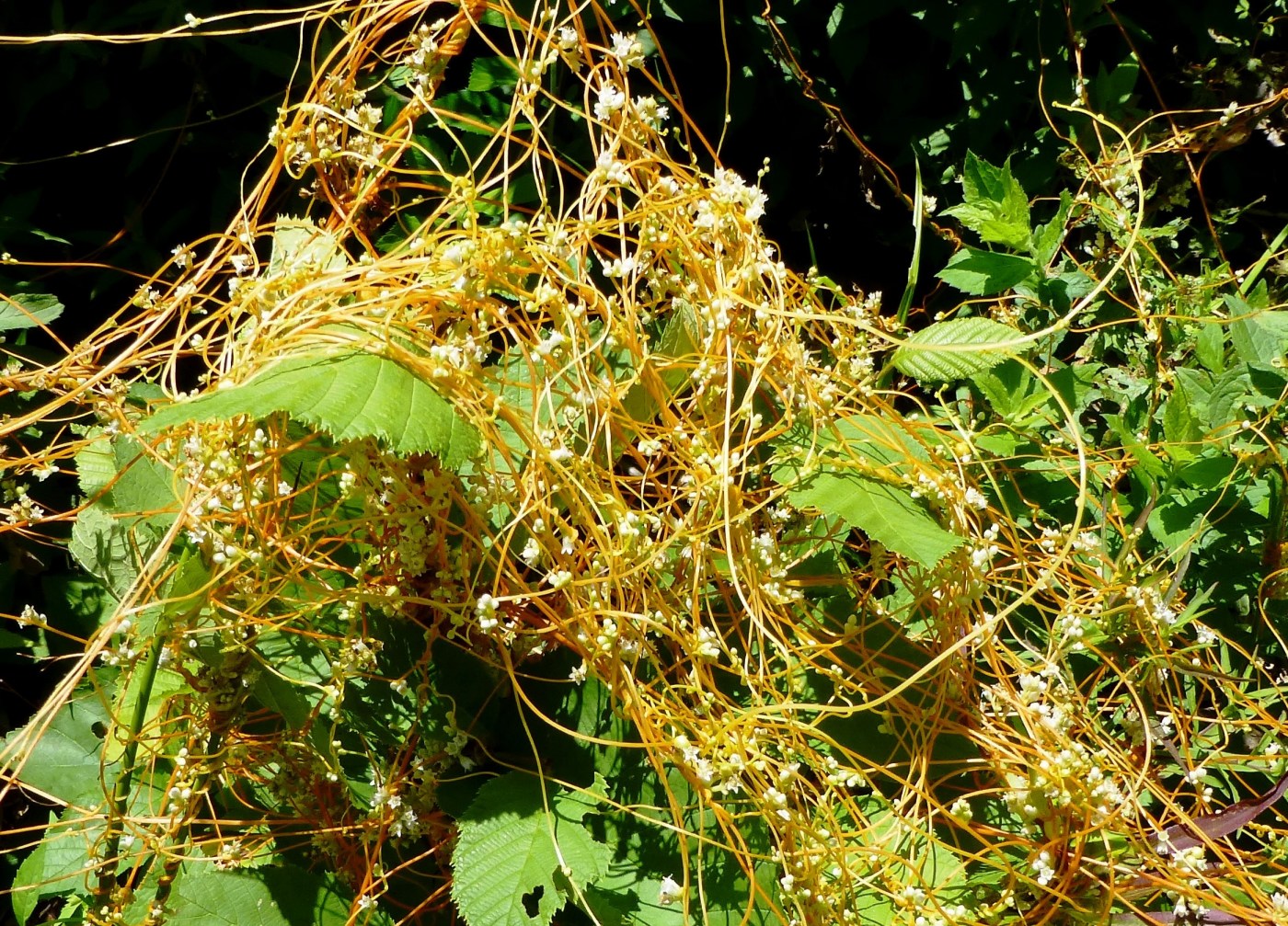BREAKING: The invasive parasitic plant Dodder is rapidly spreading across Connecticut, posing an urgent threat to native flora and crops. This unique member of the morning glory family, also known as “Angel’s Hair” and “Strangle Weed,” relies solely on other plants for survival, making its presence particularly concerning for gardeners and farmers alike.
Recent observations confirm that Dodder, identifiable by its yellow to orange twining stems, has been spotted extensively in damp fields and around pond banks from mid-July through September. This aggressive plant has the ability to “sniff out” potential host plants shortly after germination, gravitating toward specific chemical signals emitted by plants like jewelweed and tomatoes.
WHAT THIS MEANS: The swift growth of Dodder threatens to weaken or even kill host plants, disrupting local ecosystems and agricultural productivity. Its invasive nature has earned it a spot on the Federal List of Noxious Weeds, though it is not classified as invasive due to its native status.
Dodder germinates from seeds that can remain viable in soil for over 20 years, allowing it to reappear in the same area long after previous infestations. Research indicates that once firmly established, removing Dodder and its host plants is crucial, particularly before seed production begins.
LOOK OUT FOR: Gardeners and nature enthusiasts should be vigilant in July and August, monitoring areas where jewelweed is abundant for signs of Dodder. Look for stringy orange mats overtaking these plants and nearby Joe-pye weed and goldenrods.
The UConn Home & Garden Education Center emphasizes the importance of early detection and removal of Dodder to prevent it from becoming deeply rooted in local ecosystems. They advise routine scouting and potential removal of small Dodder plants from host plants to minimize spread.
NEXT STEPS: If you suspect Dodder in your area, immediate action is recommended. Contact UConn Home & Garden Education Center at (877) 486-6271 or visit their website for further guidance on managing this aggressive parasitic plant.
Stay alert and share this information with fellow gardeners and nature lovers to combat the spread of Dodder in Connecticut. The time to act is now!
